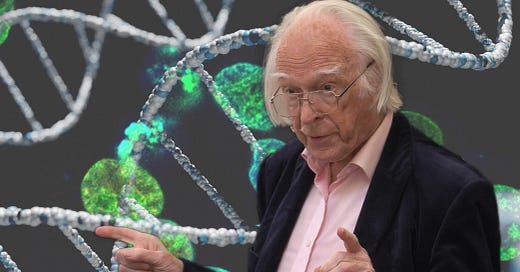Denis Noble
British physiologist and biologist who held the Burdon Sanderson Chair of Cardiovascular Physiology at the University of Oxford
Pioneering biologist and systems theorist, Denis Noble joined us to discuss the connections between physiology, evolutionary biology, and systems science. He is well-known for his early work on cardiac physiology, creating the first mathematical model of the heart's electrical activity in 1960. This research laid the foundation for the development of computational biology, shaping how scientists understand complex biological functions. Noble's contributions also extend to the field of systems biology, where he advocates for a multi-level approach to studying life, emphasizing interactions between genes, proteins, cells, and the environment rather than a purely gene-centric view.
#28 - Denis Noble - Why The Last 80 Years of Biology Was Wrong & What Does it Mean For Us?
Listen now on Apple, Spotify, and YouTube.
Biography
Denis Noble served as the Burdon Sanderson Professor of Cardiovascular Physiology at the University of Oxford from 1984 to 2004, and he remains an Emeritus Professor there. He played an instrumental role in founding the Physiome Project, an international effort aimed at modeling all human organs. His work in computational physiology has influenced treatments for cardiac conditions and has laid the groundwork for modern systems biology. Throughout his career, Noble has been an advocate for integrating mathematical and computational methods into biological research. Archives of IT
Thought Leadership
Noble challenges traditional evolutionary theory through his advocacy for "The Third Way of Evolution," which he co-founded. This movement calls for a new synthesis in evolutionary biology that incorporates findings from epigenetics, developmental biology, and physiology, suggesting that factors beyond random genetic mutations drive evolution. In his book, The Music of Life, he presents an alternative view that positions life as a complex, interactive system rather than a collection of genes dictating traits. He has argued for a paradigm shift away from Neo-Darwinian principles to account for the intricate web of factors influencing inheritance and evolution. Wikipedia The Third Way of Evolution Reason with Science




